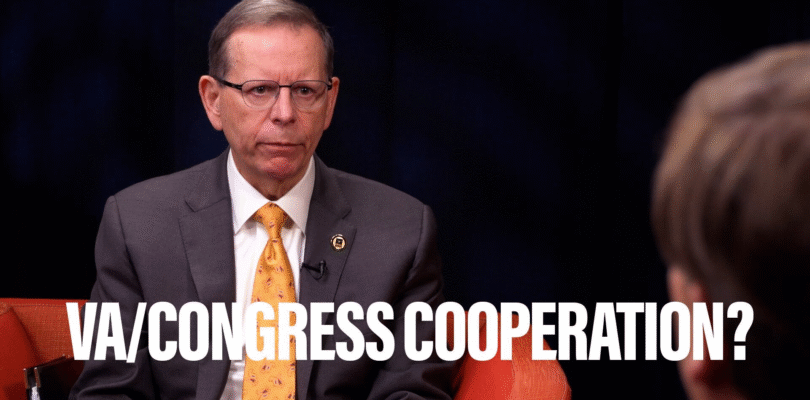Veterans Affairs Deputy Secretary Paul Lawrence thinks that department leaders have a solid relationship with lawmakers on Capitol Hill, despite what you’ve heard.
“The public perception, I don’t think, is exactly accurate,” he said in an exclusive interview with Military Times this week. “Veterans issues are bipartisan. Even when I met with Democratic senators through my confirmation process, it was, ‘Let’s talk about what we can do to improve service for veterans. Let’s talk about my state. What can we work on together?’”
“I understand how politics works. But at the end of the day, we’re all going to work together to make things better for veterans.”
That positive outlook stands in sharp contrast to the public, contentious relationship between top congressional Democrats and other top Veterans Affairs officials.
In the last few months, the two sides have sparred on social media and in Capitol Hill hearing rooms over a host of issues relating to planned and in-progress reforms for the department.
Senate Democrats have accused VA Secretary Doug Collins of withholding information on contract cancellations and misleading the public on a host of staffing cuts. Collins, in turn, has accused liberal lawmakers of stoking ungrounded fears about programs and benefits cuts, and amplifying rumors instead of squashing them.
A few weeks ago, @PattyMurray was spreading ridiculous lies that VA would turn away unmarried Veterans. Now she’s at it again, claiming our reforms are hurting VA’s performance. Nope. The backlog of Vets waiting for benefits is down nearly 30% since Jan. 20. Once again, stop… https://t.co/kUuIZcMe7d
— VA Secretary Doug Collins (@SecVetAffairs) July 8, 2025
Lawrence, who was easily confirmed as VA Under Secretary of Benefits during President Donald Trump’s first term but narrowly approved for the department’s second-highest post in March, dismissed some of those disagreements as more theater than substance.
“It’s unfortunate, and I don’t know all of those conversations,” he said. “But I’ve had great relationships with both sides of the aisle, even acknowledging about where we disagree. But we never disagreed on the outcome. We never disagreed on wanting veterans to get their benefits faster, or their service, their health care services better.”
He said he hopes to build on those common goals in coming months, as the department pushes ahead with more reforms.
Last week, senior VA leaders announced they no longer have a major reduction in force planned for department staffers, thanks to about 30,000 completed and anticipated retirements and departures this fiscal year.
“We’re going to continue to optimize and drive efficiencies,” Lawrence said. “But there won’t be one big thing. It’ll just be continual improvement …
“Several months from now, I hope we’ll be talking about some of the other things we’ve done in terms of better care, efforts to make the organization more efficient and deliver benefits to our veterans and health care to our veterans faster.”
But he acknowledged that one major obstacle to that envisioned progress is jump-starting the VA leadership confirmation process.
Lawrence was the last senior department official to be confirmed by the Senate. Since then, Democratic leaders have placed a hold on other nominees, for a range of concerns about department transparency and oversight.
“We’re doing important things where we need leaders,” the deputy secretary said. “We will be better when we have senior leaders here doing the things that they’re specialized in.”
For now, that impasse remains. Lawrence said he hopes to talk with lawmakers in coming weeks about potential ways to answer their questions and calm fears, to keep the reform momentum he sees moving ahead.





